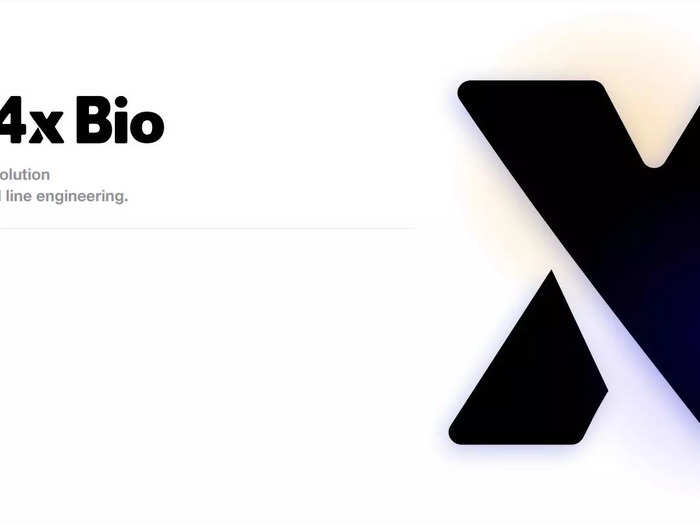
64x Bio cofounder and CEO Alexis Rovner.64x Bio
Market research isn't the most exciting part of a young scientist's work — but for one researcher, it turned into a business opportunity.
Alexis Rovner had been looking into new ways of sequencing genes as part of her postdoctoral research under prolific biotech founder Dr. George Church. But she stumbled upon a problem while doing market research: people developing new types of medicines called cell and gene therapies generally need to use special viruses to deliver them deep into the body, called viral vectors. Yet it is incredibly inefficient and expensive to make big batches of these viruses, because they are so difficult to engineer correctly.
This discovery led to Alexis Rovner becoming CEO of a new biotech: 64x Bio. The company is using computational tools and synthetic biology to make it easier to produce these viral vectors.
On Wednesday, 64x Bio closed a $55 million Series A round. Lifeforce Capital led the round, which also included Northpond Ventures, Future Ventures, Aldevron cofounder and former CEO Michael Chambers and Recursion Pharmaceuticals cofounder and former CEO Chris Gibson.
There are around a dozen cell- and gene-therapies available for patients today. But scientists and investors have high hopes for the future — there are more than 440 of these treatments in development, according to a May 2021 McKinsey report, and VCs continue to pour money into this emerging science.
Players in the field think that targeting genes could not only treat diseases, but potentially prevent heart attacks or Alzheimer's disease. But a manufacturing bottleneck could severely limit the science's potential. That's where 64x Bio comes in.
"The market is growing, and all of these companies are facing the same problem," Rovner told Insider.
64x Bio provided Insider with the presentation it used to raise $55 million in Series A funding. The presentation was edited by the company to remove sensitive and proprietary information.
Here is the 10-slide presentation 64x Bio used to raise $55 million in Series A funding from Lifeforce Capital and other investors.









 Colon cancer rates are rising in young people. If you have two symptoms you should get a colonoscopy, a GI oncologist says.
Colon cancer rates are rising in young people. If you have two symptoms you should get a colonoscopy, a GI oncologist says. I spent $2,000 for 7 nights in a 179-square-foot room on one of the world's largest cruise ships. Take a look inside my cabin.
I spent $2,000 for 7 nights in a 179-square-foot room on one of the world's largest cruise ships. Take a look inside my cabin. An Ambani disruption in OTT: At just ₹1 per day, you can now enjoy ad-free content on JioCinema
An Ambani disruption in OTT: At just ₹1 per day, you can now enjoy ad-free content on JioCinema Deloitte projects India's FY25 GDP growth at 6.6%
Deloitte projects India's FY25 GDP growth at 6.6%
 Italian PM Meloni invites PM Modi to G7 Summit Outreach Session in June
Italian PM Meloni invites PM Modi to G7 Summit Outreach Session in June
 Markets rally for 6th day running on firm Asian peers; Tech Mahindra jumps over 12%
Markets rally for 6th day running on firm Asian peers; Tech Mahindra jumps over 12%

Copyright © 2024. Times Internet Limited. All rights reserved.For reprint rights. Times Syndication Service.